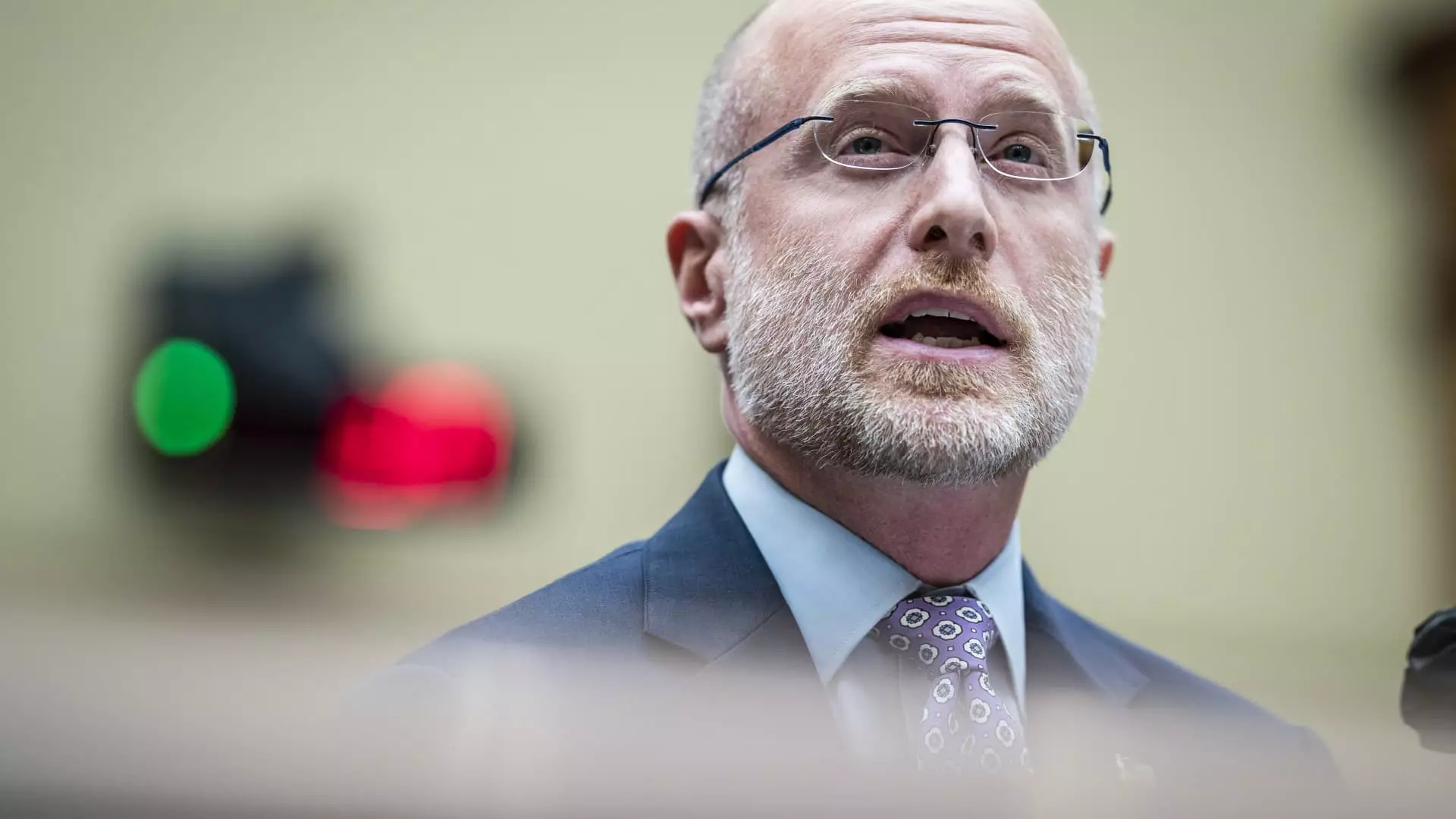The appointment of Brendan Carr as the chairman of the Federal Communications Commission (FCC) marks a significant transition in the regulation of telecom and internet policies in the United States. This decision by President-elect Donald Trump signals a clear departure from the Biden administration’s approach to key issues such as broadband subsidies and content moderation. Carr, who has positioned himself as a vocal antagonist of the current administration’s telecom strategies, is expected to bring a distinct perspective to the FCC, especially concerning free speech and media regulation.
At 45 years old, Carr has already made a name for himself in the telecommunications arena. Previously serving as the top Republican at the FCC, he has openly criticized the agency’s decision to withhold nearly $900 million in subsidies intended for SpaceX’s Starlink satellite internet project. His dissatisfaction also extends to the Commerce Department’s ambitious broadband infrastructure program, which is set at $42 billion. Furthermore, his stance against major technology firms has been marked by letters sent to giants like Meta, Google, Apple, and Microsoft, accusing them of censoring American voices online. By advocating for the restoration of free speech, Carr encapsulates a growing unease among many regarding the influence of Big Tech over public discourse.
Carr’s appointment aligns tightly with Trump’s combative approach towards traditional media outlets. The president-elect has not shied away from suggesting that major networks could potentially face punitive measures, including the loss of their FCC licenses, for what he perceives as biased or incorrect portrayals of his administration. This reflects a broader trend in political discourse, where media ownership and control over content distribution are being scrutinized intensely. The tension has been further amplified by Trump’s direct actions against CBS, showcasing the intertwined relationship between political power and media regulation.
Throughout his career, Carr has maintained a steadfast opposition to regulatory frameworks that he believes suppress free speech. His strong stance against the reinstatement of net neutrality rules, which had been initially repealed under Trump’s first term, emphasizes his commitment to deregulation. With a federal appeals court recently halting Biden-era rules on this matter, Carr’s leadership might herald a potential reshaping of the discourse on internet accessibility and fairness.
Moreover, Carr’s diplomatic excursions, such as his historic visit to Taiwan as the first FCC commissioner, underline his broader geopolitical concerns, especially concerning Chinese telecommunications companies. His hawkish perspective on China reflects a growing need among U.S. policymakers to address national security issues linked to telecommunications.
As the incoming administration prepares for its tenure, the question arises: what direction will the FCC take under Brendan Carr’s leadership? While Carr’s previous experience and outspoken criticisms position him as a formidable figure in shaping telecom policies, significant challenges lie ahead. The balance between regulatory oversight and the safeguarding of free speech in the digital age will require careful consideration. Ultimately, the implications of his appointment will resonate far beyond telecom, potentially affecting broader issues of media freedom, economic growth, and U.S. relations with global powers.

Leave a Reply